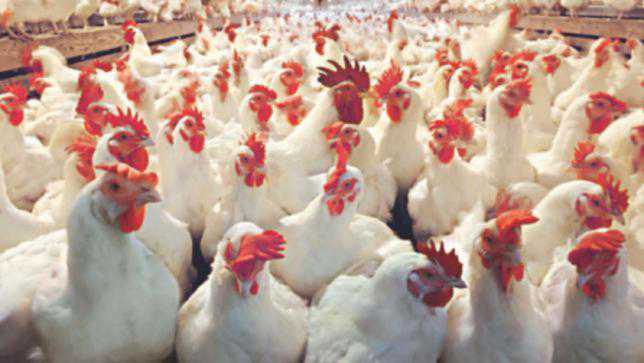Protein for Fowls: Poultry industry wants ban lifted

Poultry industry people want the government to lift the ban on import and sale of meat and bone meal (MBM), a protein concentrate for chicken.
They said the ban would adversely affect the Tk 25,000-crore industry because the alternative feed, called fish meal, would increase their production cost by about 10 percent.
Citing health concerns, the government banned the MBM early this month.
The feed comes in the form of powder, and is made from bones of animals, including cow and goat and the small amount of meat attached to the bones.
It can cause anthrax, antibiotic resistance, and even cancer, officials at the Department of Livestock Services (DSL) told The Daily Star earlier this week.
Yesterday, industry insiders said they welcomed the government move to ensure safe food, but banning the import of MBM was not the solution.
A tonne of MBM costs $500 to $600 whereas its alternative, fish meal (made of dried sea fish) costs $1,200 to $1,350 per tonne, they added.
The Import Policy 2015-2018 had provisions for MBM import, but under strict conditions: it has to be free of antibiotics, chromium (which is linked to cancer), radiation, virus and bacteria.
But last year, authorities unearthed import of low-quality MBM through Chittagong Port. The ministry then formed an expert committee, which recommended the ban, ministry officials said.
“We banned its import after finding that some businesses were importing low-quality MBM through misdeclaration,” Hiresh Ranjan Bhowmick, director general of the DSL, told The Daily Star yesterday.
“Germs even in one lot of the meal can spread diseases, including mad cow. So we are not taking any risks,” he said.
But industry people said they could not be held responsible for the government's failure to check import of low-quality products by some dishonest traders.
“You cannot cut your head because you have a headache,” said Moshiur Rahman, convener of Bangladesh Poultry Industries Central Council, at a press conference in the capital yesterday.
The Chittagong Port is equipped with a modern laboratory for detection of sub-standard products, he added.
Lutfor Rahman, a member of Feed Industries Association of Bangladesh (FIAB), said a kg of poultry feed cost about Tk 30-32 in India and Thailand. In Bangladesh, it costs Tk 42.
Following the ban, FIAB members have been using the fish and vegetable meals in the feed, which is pushing their production cost, he said, adding that their overall cost would go up by about 10 percent.
And with the ban in place, the price of fish and vegetable meals is also likely to increase, said Lutfor.
Some 80 lakh people, including about 10 lakh entrepreneurs, are involved in the poultry industry. They will be in a difficult position if prices go up and people cut poultry consumption, he said.
According to the Department of Livestock Services, poultry and eggs meet about 36 percent of the total protein intake in the country.
Shamsul Arefin Khaled, president of World Poultry Science Association-Bangladesh, said they were ready to fully cooperate with the government to ensure import of quality MBM.
“The country cannot suffer because of the illegal activities of a section of businesses,” Khaled said.
He stressed the need for strict inspection. He argued that despite the ban, some dishonest traders can still import poor-quality MBM through misdeclaration, taking advantage of the lax monitoring and inspection at the ports.
But the DLS director general strongly backed the government ban.
“We have already asked the customs authorities to strictly enforce the ban. Besides, we have started drives against low-quality feed and are destroying those. We will continue the drive,” he said.
Source: https://www.thedailystar.net